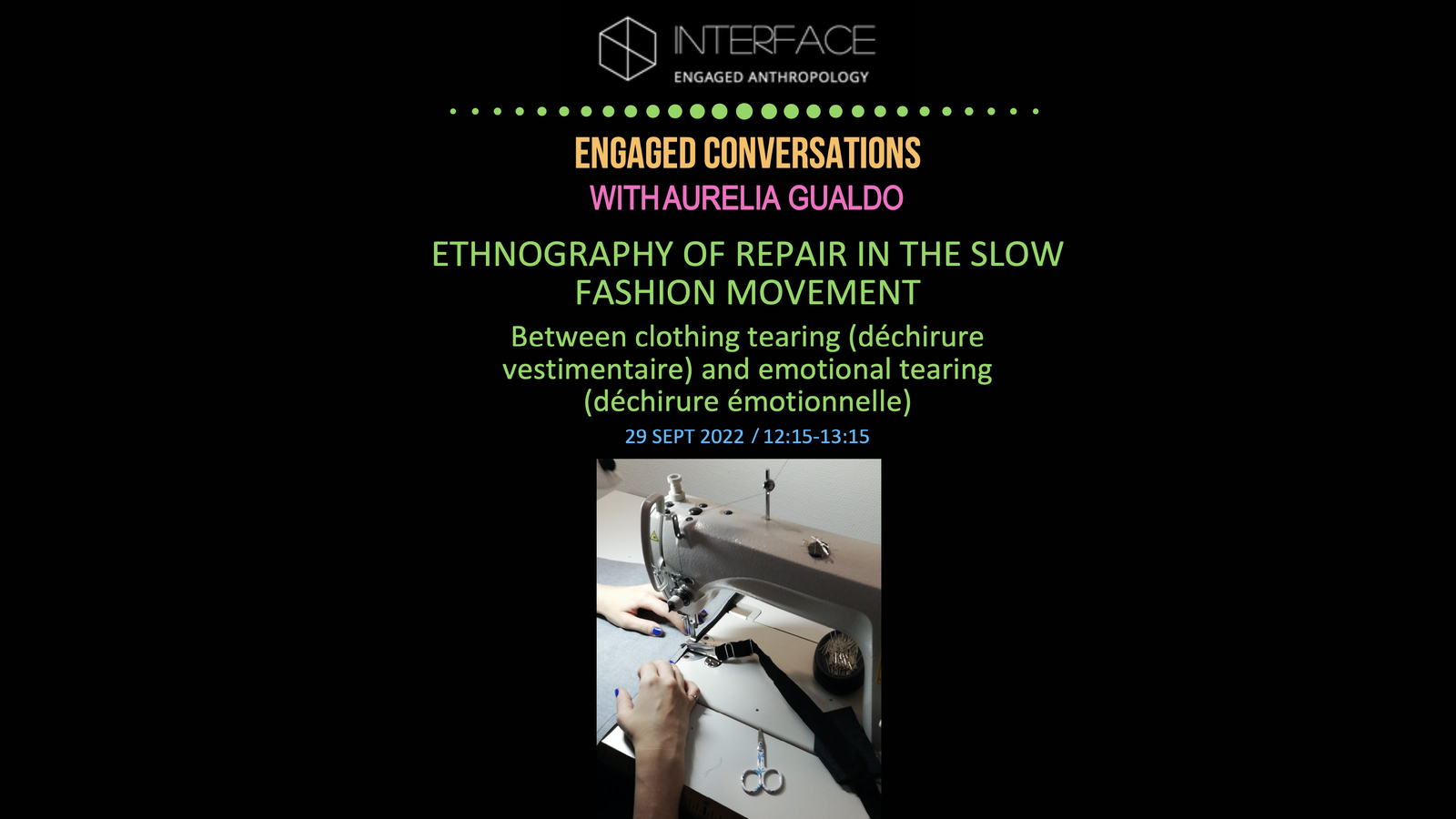Ethnograpy of Repair in the Slow Fashion Movement
Organised by the Interface Commission
My research is about mending and commitment in the slow fashion movement. The fieldwork was in Paris from October 2016 to February 2020, in different communities of the slow fashion movement such as fashion activists, fashion designers and a public service of the town hall of Paris. For this engaged conversation, I would like to reflect on the restorative dimension of ethnographic practice and its limits, as one of the reflexive parts of my research is about the construction of a restorative ethnography during and after fieldwork.
I investigated how fashion repair know-how, like visible mending and upcycling, are part of the restorative process of an economic and political system. I also questioned how this process hides manifestations of structural violence in the fashion system based on harassment and bullying in creative studios. The slow fashion movement is not only about repairing clothes and recycling, it is also about repairing minds and emotional troubles (emotional tearing). These observations reflect my commitment to my field, and how I experienced it. The fashion system has been shaped by strategies of depoliticization led by public and private institutions, which questioned my respondents active in the slow fashion movement on how to change this system and why. These depoliticization strategies symbolize a torn field (terrain déchiré) that I did not immediately notice as a researcher. This engaged conversation will question the reciprocity between the knowledge of repair in fashion and ethnographic practice within a process of ecological and social engagement : how to represent/restore the situations experienced during the field ? Are they part of the research ? What place should be given to the emotions felt during the investigation ? How are emotions involved in a restorative engagement process ?
